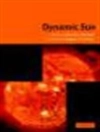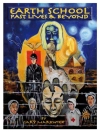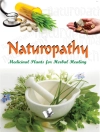“A must-read for anyone interested in practical philosophy.”—Donald J. Robertson, author of How to Think Like a Roman Emperor
Navigate the challenges of modern life, with ancient and time-tested Greek and Roman thinkers at your side.
“A refreshing example of a too-rare form of self-help, in which the goal isn’t success or happiness but becoming a better human being.”—The Wall Street Journal
What is a good life? And how can we create that life in a world filled with uncertainty? Beyond Stoicism invites you to find your own answers to these big questions with help from thirteen of the most prominent Greco-Roman philosophers—many of whom inspired, or were inspired by, the Stoics. By taking cues from the lives and ideas of the Cynics, Epicureans, and others, you’ll learn to:
- Seek pleasure with Aristippus
- Strike the right balance with Aristotle
- Focus on what’s up to you with Epictetus
- Be a rebel like Hipparchia
- Embrace uncertainty with Carneades
- Question everything with Socrates
- Work toward a just society with Plato
- And much more
Times have changed, but the quest for eudaimonia—a life worth living—stays the same: We still seek pleasure and crave love, avoid pain and fear death. That’s why all these ancient sages can continue to guide us, practicing Stoics and new seekers alike.
With exercises to help you test-drive each philosophy today
Publisher’s Note – Errata: The first printing of Beyond Stoicism duplicates page 188 on page 118. Readers may download page 118 at the Beyond Stoicism page at theexperimentpublishing.com.
สารบัญ
Chapter 1 (Prologue): A general introduction to the very idea of a philosophy of life; an explanation of why the focus on the Greco and Roman tradition; and a three-pronged approach to living a good life. The prongs are: pleasure, character, and doubt. They represent three fundamental areas explored by Greco and Roman life philosophies and provide the general framework for the book’s exploration of these philosophies.
Chapter 2: Aristippus and pleasure.
Chapter 3: Epicurus and the avoidance of pain.
Chapter 4: Socrates on knowing yourself.
Chapter 5: Plato and the just society.
Chapter 6: Aristotle on striking the right balance.
Chapter 7: Epictetus and what is truly up to us.
Chapter 8: Hipparchia and the courage of rebellion.
Chapter 9: Cicero and uncertainty.
Chapter 10: Pyrrho and suspending judgment.
Chapter 11 (Epilogue): How to generate one’s own manual for a good life. This will be an interactive section where readers will review their experience with each philosophy they have sampled in the book and select what approaches they found most useful. Based on the results of a self-assessment exercise, they will then be guided through constructing their own practical philosophy and given suggestions for further readings to explore how to live a fulfilling philosophical life.
เกี่ยวกับผู้แต่ง
Massimo Pigliucci is the K. D. Irani Professor of Philosophy at the City College of New York. He has written for publications such as The New York Times, The Washington Post, The Wall Street Journal, Philosophy Now, and The Philosophers’ Magazine, among others. Pigliucci is the author or editor of sixteen books, including the bestselling How to Be a Stoic and most recently The Quest for Character. He is the coauthor with Gregory Lopez of A Handbook for New Stoics.












